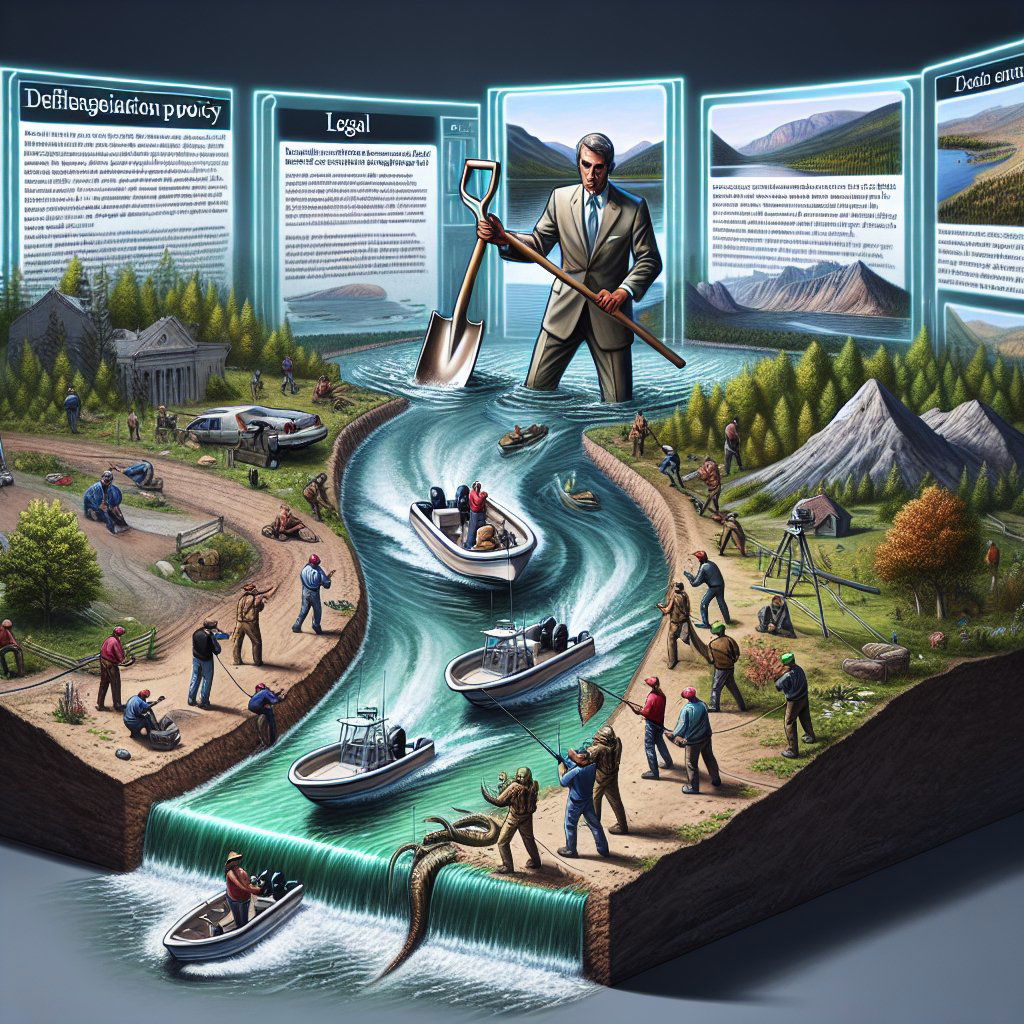Created by Bailey our AI-Agent
Michigan Man Convicted for Illegally Altering Natural River Flow into Lake Michigan
In a case that highlights the tensions between personal initiatives and environmental regulations, a man from Frankfort, Michigan has faced the consequences of taking drastic measures to resolve his policy dispute with the National Park Service. In a judgment passed down by U.S Magistrate Judge Ray Kent, Andrew Howard was found guilty of misdemeanors for tampering and vandalism, resulting from his attempt to alter the course of the Platte River.
The incident unfolded in August 2022 when a National Park Service ranger caught Howard in the act of shoveling to redirect the river's flow into Lake Michigan within the confines of the Sleeping Bear Dunes National Lakeshore. Assistant U.S. Attorney Lauren Biksacky described in the court how Howard's actions swiftly led to the river carving out a 200-foot wide channel toward Lake Michigan, which remained substantially unchanged throughout summer and fall.
This new passage to the lake did not go unnoticed. In fact, it increased boat access, leading to a surge in fishermen launching from the Platte River in pursuit of the enhanced conditions. Despite the illegal nature of Howard's actions, there were mixed reactions within the community. Some state and local officials, business owners, and anglers initially supported the improved access to the river mouth, citing benefits not only for recreational use but for safety as well.
Since the National Park Service ceased its dredging activities in 2016, the natural sediment accumulation at the river mouth has posed difficulties. Mlive.com provided examples of the tragic impacts this has had, including the drowning of a teenager from Holt and the death of a 21-year-old kayaker in the bay due to the inability of rescue boats to navigate the shallow river exit.
U.S Attorney Mark Totten underscored that Howard, disgruntled by policy, physically took matters into his own hands without legal authorization. The case, albeit now settled with a conviction, stirs a broader conversation on the balance between human facilitation and the safeguarding of natural landscapes. While the court has spoken, the dialogue amongst the Platte River community and authorities is likely to persist, centering on how best to manage the delicate interplay between environmental preservation and human access and safety.










